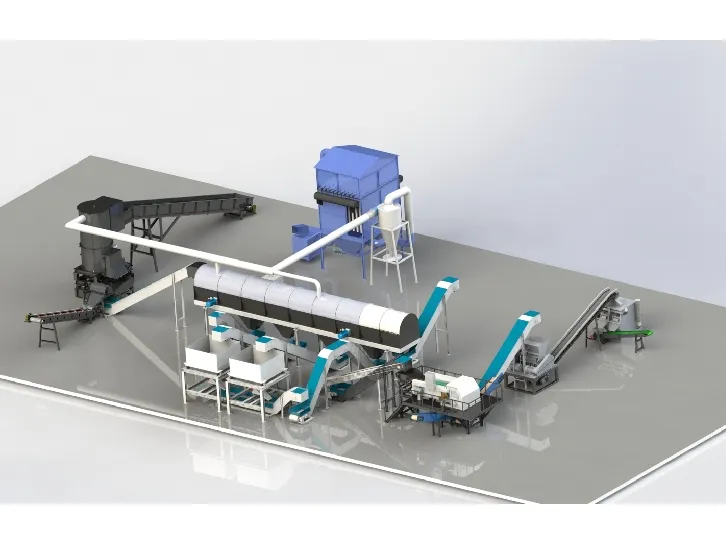

Lis . 03, 2024 15:43 Back to list
Aluminium Shredding A Key Process in Recycling and Waste Management
Aluminium recycling has gained significant importance over the years, particularly due to the metal's lightweight nature, durability, and versatility in various applications. One of the fundamental processes in aluminium recycling is shredding, which involves breaking down large pieces of aluminium scrap into smaller, manageable sizes. This process not only enhances the efficiency of recycling but also maximizes the recovery of aluminium from waste materials.
Shredding aluminium is crucial for several reasons. Firstly, it allows for the efficient processing of large volumes of scrap aluminium. The shredding process reduces the size of aluminium materials, making them easier to transport and handle. Smaller pieces can be processed more quickly and uniformly, which is essential for maintaining the integrity of the recycling process and ensuring that the output quality remains high.
Secondly, shredding increases the surface area of the aluminium, promoting better interaction during subsequent processes, such as melting and purification. When aluminium is shredded, it can be more easily combined with other materials during the recycling process, ensuring that contaminants are removed and that the final product is of high purity. This is crucial for manufacturers who require high-quality aluminium for their products.

Moreover, shredding is vital for the recovery of valuable alloys. Many aluminium products are made from alloys that contain additional metals, and shredding can help separate these components. Advanced shredding technologies can segregate different materials more effectively, thereby increasing the yield of pure aluminium. This is not just beneficial for the recycling industry but also for the environment, as it reduces the need for mining new aluminium, which is energy-intensive and environmentally damaging.
From an environmental perspective, aluminium shredding contributes to sustainability efforts. By recycling aluminium, we can significantly reduce greenhouse gas emissions and energy consumption compared to producing new aluminium from raw ore. In fact, recycling aluminium saves up to 95% of the energy required for primary production. As the world moves toward more sustainable practices, the importance of effective aluminium shredding in the recycling chain cannot be overstated.
In conclusion, aluminium shredding plays a crucial role in the efficiency and effectiveness of recycling operations. It not only facilitates the processing of scrap materials but also enhances the recovery of valuable resources, contributes to environmental sustainability, and supports a circular economy. As technology continues to evolve, the processes surrounding aluminium shredding will undoubtedly improve, further enhancing recycling efforts worldwide.
Latest news
Troubleshooting Common Eddy Separator Problems
NewsJul.04,2025
The Role of Metal Recycling Plants in Circular Economy
NewsJul.04,2025
The Impact of Recycling Line Pickers on Waste Management Costs
NewsJul.04,2025
Safety Features Every Metal Shredder Should Have
NewsJul.04,2025
How Industrial Shredders Improve Waste Management Systems
NewsJul.04,2025
How Cable Granulators Contribute to Sustainable Recycling
NewsJul.04,2025